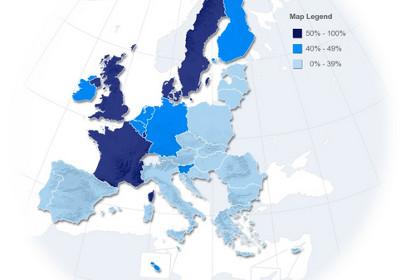Europeans show mild apathy toward science
More than a third of respondents also appear content to be left out of science and technology decisions. Of those surveyed, 37% say public dialogue is not required when it comes to making decisions about science and technology: The less informed respondents feel about science, the less they think public dialogue is required. In five Eastern European countries (Slovenia, Slovakia, Latvia, the Czech Republic, and Hungary), a majority of respondents believe they don't need to be involved in such decisions.
The survey also shows a slight increase of traditional views, in particular in Eastern and Mediterranean countries. Asked if “we depend too much on science and not enough on faith,” 39% of European respondents agree, while 32% disagree and 25% are neutral. (Those with a lower level of education are more likely to agree with that statement.)
On average, this is only a 1-point increase in the number of respondents who agreed compared with the previous survey, carried out in 2010. But this figure is on the rise in 17 out of 28 countries, including Bulgaria, where 66% of respondents agree that science takes too much precedence over faith—a whopping 14-point increase.
In a similar vein, 62% of respondents agree that “science makes our ways of life change too fast,” a 4-point increase compared with the 2010 survey. This proportion has increased in 26 member states, including 2-digit growth rates in Ireland, Malta, Romania, Estonia, Latvia, and Luxembourg.
On a more positive note, respondents generally believe that science is a force for good. Overall, 77% say that science and technology have a positive influence on society. Two-thirds of respondents agree that science and technology make our lives easier, more comfortable, and healthier, and three-quarters say that they will bring more opportunities for future generations. These two figures are unchanged compared to the 2010 survey.
Sourse:

